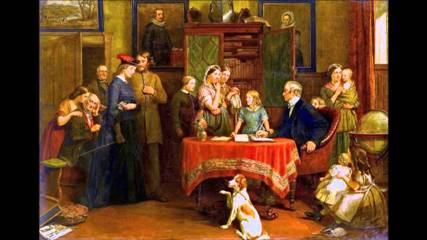Ferdinando Paer – Agnese (Highlights) [2008]
Ferdinando Paer – Agnese (Highlights) [2008]

1. Act I 2. Act II Linda Campanella (soprano) : Agnese Giorgio Valerio (bass-barytone) : Uberto Emanuele D'Aguanno (tenor) : Ernesto Riccardo Novaro (bass) : Don Pasquale Giuliana Castellani (mezzo) : Carlotta Jeremy Palumbo (tenor) : Don Girolamo Alena Dantcheva (soprano) : Vespina Coro della Radio Svizzera Orchestra della Svizzera Italiana Diego Fasolis – conductor Lugano, Auditorio Stelio Molo Friday 15 February 2008 Broadcast , Radio Suisse Romande Espace 2, live
Ferdinando Paer (1771 – 1839) was an Italian composer. Paer was born at Parma. His father was a trumpeter with the Ducal Bodyguards and also performed at church and court events. His name, Ferdinando, was after Duke Ferdinand of Parma and was given to him by Archduchess Maria Amalia of Austria, Duke Ferdinand's wife. He studied the theory of music under the violinist Ghiretti, a pupil of the Conservatorio della Pietŕ de' Turchini at Naples. His first Italian opera, Circe, was given in Venice during carnival 1792; others rapidly followed, and his name was soon famous throughout Italy. In 1797 he went to Vienna, where his future wife, the singer Francesca Riccardi, had obtained an engagement and he became music director of the Kärntnertortheater until 1801; here he produced a series of operas, including his Camilla (1799) and his Achille (1801). In 1802 he was appointed composer to the court theatre at Dresden, where his wife was also engaged as a singer, and in 1804 the life appointment of Hofkapellmeister was bestowed upon him by the elector.
He wrote the opera Leonora (1804), based on the same story as Beethoven's Fidelio. In 1807 Napoleon while in Dresden took a fancy to him, and took him with him to Warsaw and Paris at a salary of 28,000 francs.
1809 Paer composed his most famous opera: Agnese a dramma semiserio per musica in two acts: Agnese, became successful throughout Europe and was performed at the most important theatres (Milan, Naples, Rome, Vienna, London and Paris). It had a deep influence on the following generations of composers and aroused the admiration of many celebrated musicians and musical critics such as Stendhal, Berlioz, Castil-Blaze and Chopin. The primary reason for this success is most certainly the high quality of the music involved, but the dramaturgical structure also presents significant material such as the madness scene of Agnese’s father Uberto (bass).
In 1812 he succeeded Spontini as conductor of the Italian opera in Paris. He retained this post at the Restoration, also receiving the posts of chamber composer to the king and conductor of the private orchestra of the duke of Orleans. In 1823 he retired from the Italian opera in favor of Rossini. It was around this time that he taught composition lessons to the young Franz Liszt. In 1831 Paer was elected a member of the Academy, and in 1832 was appointed conductor of his orchestra by King Louis Philippe.
Paer wrote a total of 55 operas, in the Italian style of Paisiello and Cimarosa. His other works, which include several religious compositions, cantatas, many songs and a short list of orchestral chamber pieces, are worthy of further study and performance. His music is highly imaginative and melodic. One of his pupils was Ferdinando Orlandi.
download (mp3 @160 kbs):
uploaded yandex 4shared mega mediafire solidfiles zalivalka cloudmailru oboom








